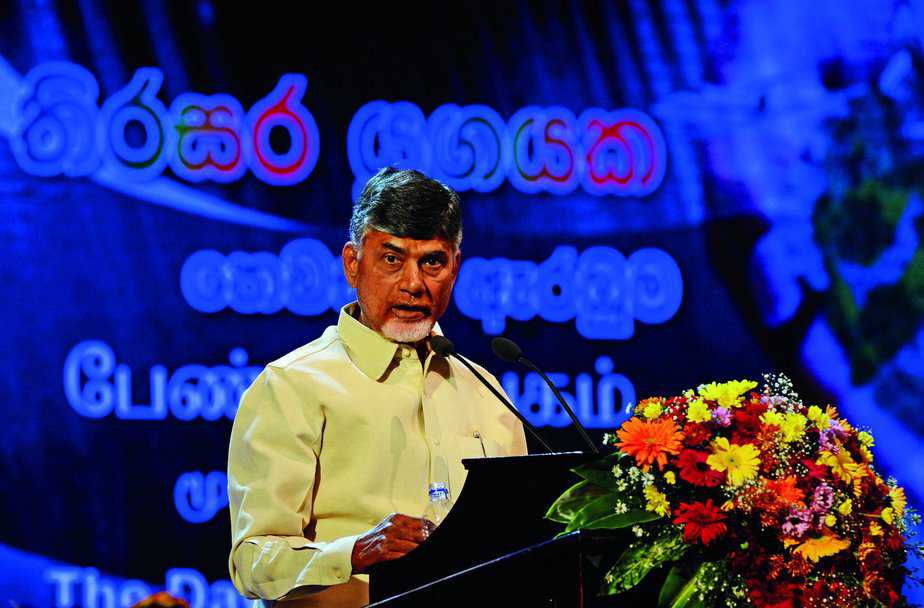The BJP’s extra-political relationship with YSR Congress and ignoring of Naidu’s complaints and demands led to resentment. Naidu’s decision is based on the surmise that Modi-led BJP will not get a majority on its in 2019
“Talaq, Talaq, Talaq” shouted some of Telugu Desam Party’s (TDP) MPs near Mahatma Gandhi’s statue in the Parliament House complex. The day after their party chief and Andhra Pradesh CM Chandrababu Naidu had taken the decision to call off the four-year relationship with the BJP, they were least concerned about the misogynistic nature of their war cry.
The relationship between the TDP and BJP has never been one built on mutual trust. The TDP, in particular, suspected all along that the BJP was trying to engage in an extra-political relationship with the YSR Congress. This was also because in 2014, sources reveal, PM Narendra Modi’s first choice of political ally in Andhra Pradesh was Jaganmohan Reddy.
It was only when Jagan reportedly fussed about how the BJP’s Hindutva DNA and Modi’s own image will affect his Christian minority votebank that the saffron party turned to Naidu.
In the past few months, rumours of the BJP and YSR Congress getting close to each other have been doing the rounds. This was fanned by the audience the PM gave to Jagan in May 2017 to level allegations of corruption against the Naidu regime. The TDP was not pleased, reminding the BJP of coalition dharma where a party is not expected to encourage a political rival to belittle your ally.
But the meetings did not stop. Jagan’s close aide, MP Vijay Sai Reddy, too met the PM. That this period of time coincided with Naidu not meeting Modi for over a year, meant that political circles knew all was not well in the TDP-BJP marriage.
Sometime around October 2017, a few senior leaders of the TDP had also started putting pressure on Naidu to call it quits. The discontent over the Centre going slow over provisions of the AP Reorganisation Act and release of funds was beginning to show. The top leadership of the party had done an analysis of how well or badly it was placed to win a second term in office.

Its major concern was that time was running out for it to show deliverables on the ground, especially in capital Amaravati. The core capital zone was still in the design stage and only a couple of educational institutions, the temporary Secretariat and Assembly and a few roads had come up on the periphery. A few projects in other districts had taken off but not many of them are at the stage where big ticket employment is being generated. Many projects and institutions promised in the AP Reorganisation Act were yet to be kickstarted.
While the YSR Congress was critical of Naidu for selling dreams, the Centre’s response to Andhra’s requests to hurry up on funding was bureaucratic. It would point out that the AP Reorganisation Act gives a time frame of 10 years to fulfil the promises made. “So where is the hurry,” a senior TDP leader quoted the BJP’s reaction to every demand.
In a parallel move, the TDP was also keeping an eye on the BJP’s political graph. The party’s close shave in Gujarat made it believe that Modi’s stars are on the wane. The bypoll results in Rajasthan further buttressed that position. But the Union Budget that cold-shouldered Andhra’s demands was the last straw.
Naidu decided to bite the bullet based on an exhaustive assessment of the ground situation. He believes he has managed to build up a palpable sense of resentment against the BJP and the TDP could ride on it in 2019. If the Congress was the villain of the Andhra story in 2014, the BJP would be cast in that role next year.
The decision is also based on the surmise that Modi-led BJP will not get a majority on its own. The hope is that in that case, Naidu’s lot of TDP lawmakers will become critical and it is in this situation that Andhra can extract its pound of flesh and funds. To the TDP, it seems like a risk worth taking.
Those defending the political gamble argue that staying with a friend, who Naidu claimed was not being helpful and only making false promises, was of no use. By exiting, Naidu gets to project himself as a martyr who forsook power in New Delhi and can stress his position as the sole protector of Andhra interests.
Do not expect the BJP to keep quiet. It will put out its side of the story and also encourage its state leaders to go ballistic at Naidu. Many of them have already been levelling allegations of corruption in different projects in Andhra Pradesh.
It is not that the TDP is not worried. The next one year will be a challenge, its leaders say. They admit that given the precarious condition of the state exchequer, even a delay of a few days in release of funds can make Naidu desperate. The post-divorce equation may not be too pretty in Andhra.
This article was first published in Newslaundry.





